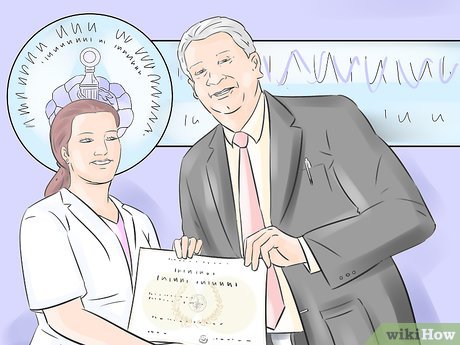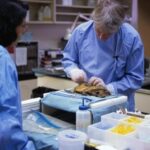The allure of forensic pathology, often stoked by popular media, lies in its unique intersection of medical science and the pursuit of justice. This fascination is rooted in the human desire to understand the enigmatic causes of death and to provide closure to grieving families. For aspiring forensic pathologists, the path to this intellectually stimulating and emotionally demanding profession requires a carefully curated educational trajectory.
I. Foundational Undergraduate Studies: Building a Robust Scientific Base
The bedrock of any medical career, including forensic pathology, is a strong undergraduate education. While there isn’t a single “pre-med” major, certain fields provide a distinct advantage. Focus on curricula that delve into the fundamental principles of biology, chemistry, and physics.
- Biology: A biology major, or a concentration in a biological science, equips you with an understanding of human anatomy, physiology, genetics, and cellular biology – all indispensable for interpreting pathological findings. Courses in molecular biology and immunology provide further depth. Consider specialized electives like histology and embryology.
- Chemistry: A strong chemistry background is critical for understanding biochemical processes, toxicology, and the effects of various substances on the human body. Focus on organic chemistry, biochemistry, and analytical chemistry. Understanding drug metabolism and interactions is paramount.
- Physics: While seemingly less directly relevant, physics provides a crucial foundation in scientific reasoning, data analysis, and the understanding of forces and mechanics. This can be surprisingly useful in analyzing trauma and injury patterns.
Crucially, irrespective of your major, ensure you fulfill the pre-medical requirements for medical school admission. These typically include courses in general biology, general chemistry, organic chemistry, physics, mathematics (calculus and statistics), and English composition.
II. Medical School: The Rigorous Journey to Becoming a Physician
Medical school is the crucible where aspiring physicians are forged. The curriculum is demanding and comprehensive, encompassing all aspects of human health and disease. The first two years typically involve preclinical coursework, while the latter two are devoted to clinical rotations.
- Preclinical Years: Immerse yourself in courses such as anatomy, physiology, biochemistry, pathology, pharmacology, microbiology, and immunology. Pay close attention to the pathology course, as it provides the foundation for understanding disease processes at the cellular and tissue level.
- Clinical Rotations: These hands-on experiences expose you to various medical specialties. While you might not have a dedicated forensic pathology rotation at this stage, seek opportunities to rotate in pathology (surgical and autopsy), internal medicine, surgery, and emergency medicine. These rotations will broaden your understanding of clinical medicine and hone your diagnostic skills.
During medical school, cultivate strong communication skills, both written and verbal. Forensic pathologists must be able to clearly and concisely convey their findings in reports and courtroom testimony.
III. Anatomic and Clinical Pathology Residency: Mastering the Art of Diagnosis
After medical school, the next step is a four-year residency in anatomic and clinical pathology (AP/CP). This residency provides comprehensive training in all aspects of pathology, including surgical pathology, cytopathology, hematopathology, microbiology, clinical chemistry, and blood banking. While you’ll learn about all these subspecialties, pay particular attention to the anatomic pathology components, including surgical pathology and autopsy pathology.
- Surgical Pathology: Learn to examine tissue specimens obtained during surgery to diagnose diseases. This involves microscopic examination of tissue sections and the use of various immunohistochemical stains and molecular techniques.
- Autopsy Pathology: This is where you’ll begin to hone your skills in determining the cause and manner of death. You’ll learn how to perform complete autopsies, interpret gross and microscopic findings, and correlate these findings with the clinical history.
During residency, actively seek out opportunities to participate in autopsy cases and present your findings at conferences. Cultivate relationships with experienced forensic pathologists and seek their mentorship. Consider attending workshops or seminars on forensic pathology to gain further exposure to the field.
IV. Forensic Pathology Fellowship: Specializing in Death Investigation
The final step in becoming a forensic pathologist is a one-year fellowship in forensic pathology. This fellowship provides intensive training in the medicolegal investigation of death. You’ll work under the supervision of experienced forensic pathologists and gain hands-on experience in performing medicolegal autopsies, investigating crime scenes, testifying in court, and interacting with law enforcement agencies.
- Medicolegal Autopsies: You’ll learn how to perform autopsies in cases of suspected homicide, suicide, accident, and natural death. You’ll also learn how to document your findings, collect evidence, and prepare reports.
- Crime Scene Investigation: You’ll have the opportunity to visit crime scenes and learn how to interpret the scene, collect evidence, and reconstruct events.
- Courtroom Testimony: You’ll learn how to present your findings in court and how to answer questions from attorneys. This requires strong communication skills and the ability to explain complex medical concepts in a clear and concise manner.
- Toxicology: Forensic pathology fellowships often include advanced training in forensic toxicology, allowing for a more comprehensive understanding of how drugs and poisons contribute to death.
The forensic pathology fellowship is a critical period for solidifying your skills and preparing you for a career as a practicing forensic pathologist. Upon completion of the fellowship, you’ll be eligible to sit for the board certification examination in forensic pathology administered by the American Board of Pathology.
V. Continuing Medical Education: Lifelong Learning in a Dynamic Field
Even after becoming a board-certified forensic pathologist, your education should not cease. The field of forensic pathology is constantly evolving, with new techniques and technologies emerging regularly. Engage in continuing medical education (CME) activities, attend conferences, and read scientific journals to stay abreast of the latest advances in the field. Certification by The American Board of Pathology requires ongoing maintenance to ensure competence. This lifelong dedication to learning will ensure that you provide the best possible service to the justice system and to the families you serve.










Leave a Comment